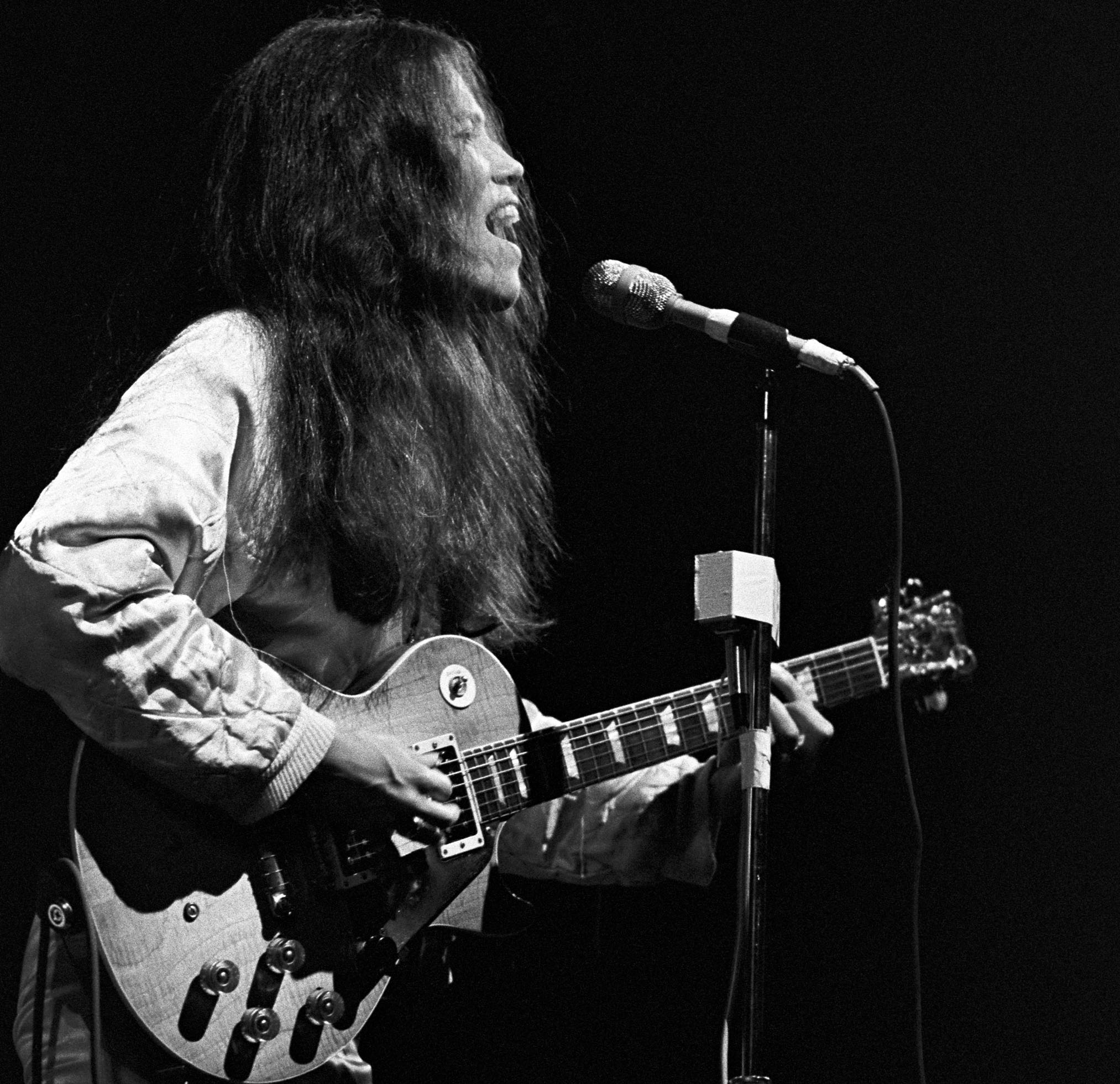“I use a spark plug to play slide. It's a trick Lowell George showed me. It gets incredible sustain – metal on metal”: In the face of sexist skepticism, Fanny's June Millington carved a unique six-string path, and inspired countless players in the process
The pioneering guitar hero discusses the unique mods she made to her '57 Les Paul, why there's more freedom in playing with just a bassist, and the time that '57 Les Paul ended up on a Steely Dan record

The Go-Go's might be the most successful all-girl rock group ever, but the satirically monikered Fanny were the first all-girl group to get national attention.
Led by the Millington sisters, Fanny recorded four albums for Warner Brothers and then a swan song LP for Casablanca without the Millingtons, who teamed up for a duet album on United Artists.
“It was interesting back in 1969 and fun to watch the audience's surprise as we turned heads around,” recalls June Millington, who still tours with an all-female backing band.
“Sure, we got cat-calls from the guys, but we could also see the mood changing and eventually we got standing ovations. We proved that females could play rock and roll – we sold sixty thousand copies of our albums.
“Fanny was ahead of its time,” she rationalizes about the thirteen years it took the Go-Go's to top the charts.
“We laid the groundwork in people's minds for groups like the Go-Go's who could break the stereotype that women could only play folk music. Women can play forcefully, and the Go-Go's have a great snare sound.”
Fanny have splintered over the years, with bassist Jean Millington married to rock guitarist Earl Slick, drummer Alice de Buhr working for A&M Records, and keyboardist Nickey Barclay missing in action.
Get The Pick Newsletter
All the latest guitar news, interviews, lessons, reviews, deals and more, direct to your inbox!
Guitarist June Millington has remained active in the music industry, recording Heartsong on her own Fabulous Records (distributed by the feminist Olivia Records out of Oakland, California) and producing Olivia artists Chris Williamson, Mary Watkins, and Holly Near.
“I was just another name on the roster,” offers Millington about the reasons for starting her own label. “I was a pawn in the game. Now I have total control over my destiny. There are not many female producers.
“Only through women's music have I been able to expand my producing skills. I enjoy working in the studio a lot, but females are not hired as producers by the major record companies.”
Olivia is a collective of women who created a record company to offer an alternative to working within the music industry. They make cultural and political statements – anti-chauvinistic, anti-racist, and anti-sexist – and fill the void that exists. Women do everything – playing, producing, writing, arranging, engineering, mixing, photography, and distribution.

Thus it comes as no surprise that Heartsong is an all-women album, with Millington playing numerous instruments on a few selections.
“I'm most comfortable on guitar,” she says. “When I was growing up in the Philippines, I heard someone playing guitar in the other room, and I was literally mesmerized by the sound. It blew my mind, and I knew I had to get a guitar.”
Her family eventually moved to Sacramento, California, and Millington spent her teenage years in America.
Millington employs three workhorse guitars. On stage, she plays a vintage 1957 Les Paul Sunburst. She has a Stratocaster tuned down a step (in regular tuning) with heavy strings to get fatter sound. And for slide, she has a Les Paul Junior with the action set up high.
“I use a spark plug to play slide,” she informs. “It's a trick Lowell George showed me. It gets incredible sustain – metal on metal.”
Millington utilizes a unique modification on her Sunburst. She has a battery-powered booster installed for overdrive and funky sounds, which is used only for lead. The rhythm and toggle switch is now the on/off switch for the booster, which is in the body.
The main volume control is right under the pick knob and close to the bridge so she can work it with her little finger and use it for a pedal steel guitar effect.
One of the tone knobs is now the variable for the amount of distortion and one of the volume knobs is now the variable for each pickup that she utilizes as signal. The other two knobs are for tone.
“The Stratocaster has an incredible rhythm sound,” she states, “sounds that I can never duplicate on the Sunburst.
“The bass frets were put on by Jeff Baxter in 1972 and because they're lower, they facilitate easier movement. The master volume pot has a mechanism that is activated if lifted up, which gives me a chicken pick effect of a Telecaster.
“This can be heard on [Heartsong track] When Wrong Is Right. I use the Stratocaster for a cleaner, funkier sound, the Sunburst for a directed sound. Jeff Baxter once borrowed my Les Paul for a Steely Dan session.”

Millington uses a beefed-up Fender Reverb amp and Ernie Ball strings with different gauges.
“I experiment with gauges,” she explains. “I want a certain resonance but don't want the tuning to slip. The heavier the strings, the more sustain I get.”
On When Wrong Is Right, Millington played her Stratocaster through a small, portable Yamaha amp, and the guitar solo was tripled. On Heaven Loves a Stranger, she played her Sunburst.
“For the solo,” she offers, “I used the booster for distortion, and I can vary the distortion.”
Millington's outboard gear includes a Boss Compressor Sustainer (CS-1), a Boss Chorus, a MXR Dyna-Compressor for solos on the Stratocaster, a MXR Flanger, and a MXR Analog Delay.
When Millington tours these days, she either performs with just an electric bassist or a four-piece backing band.
“With just a bass player,” she feels, “you have more freedom, more choices. With a band, you're more limited.”
If given the choice and money, though, Millington would rather perform with her band.
This article first appeared in the November 1982 issue of Guitar World. Subscribe and save.
You must confirm your public display name before commenting
Please logout and then login again, you will then be prompted to enter your display name.
“There’d been three-minute solos, which were just ridiculous – and knackering to play live!” Stoner-doom merchants Sergeant Thunderhoof may have toned down the self-indulgence, but their 10-minute epics still get medieval on your eardrums
“There’s a slight latency in there. You can’t be super-accurate”: Yngwie Malmsteen names the guitar picks that don’t work for shred



![A black-and-white action shot of Sergeant Thunderhoof perform live: [from left] Mark Sayer, Dan Flitcroft, Jim Camp and Josh Gallop](https://cdn.mos.cms.futurecdn.net/am3UhJbsxAE239XRRZ8zC8.jpg)









